We recently enjoyed a week’s holiday at Pevensey Bay. The home that we rented, like our own, includes many smart features but there are some similarities and differences in approach. One area of difference in smart lighting.
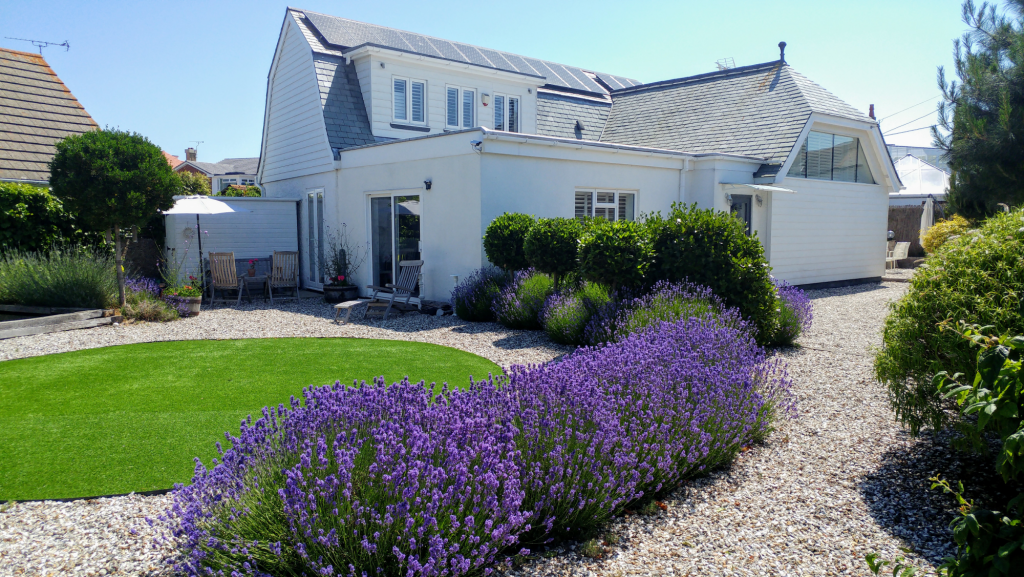
Both our own home and The Studio have smart lighting but differ in approach. Our own smart lighting concentrates on smart bulbs, while The Studio (with the exception of the kitchen) concentrates on smart switches. So why choose one approach over the other?
At our home we have a handful of smart bulbs, with standard dumb switches. The bulbs incorporate functions like dusk-to-dawn lighting and colour change for status indication (open windows, movement in garage etc). At The Studio there are a large number of smart switches controlling an even larger number of standard dumb bulbs.
So let’s think about choices:
Cost.
If you are going to control multiple bulbs together on one circuit then it’s generally cheaper to have one smart switch than multiple smart bulbs.
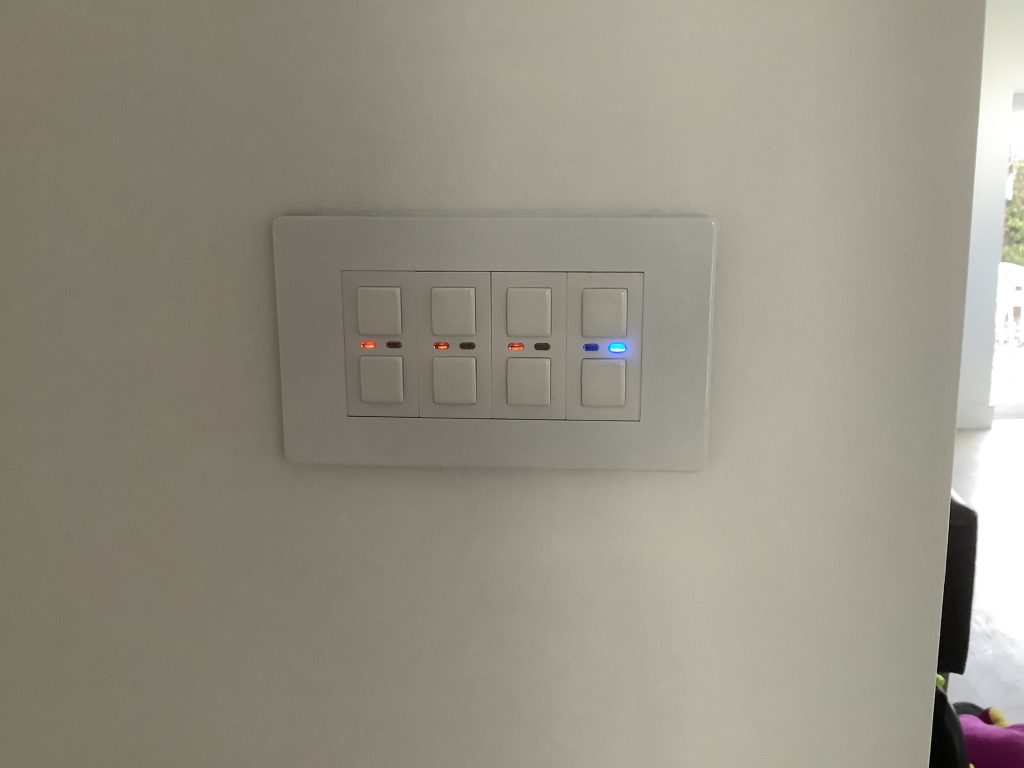
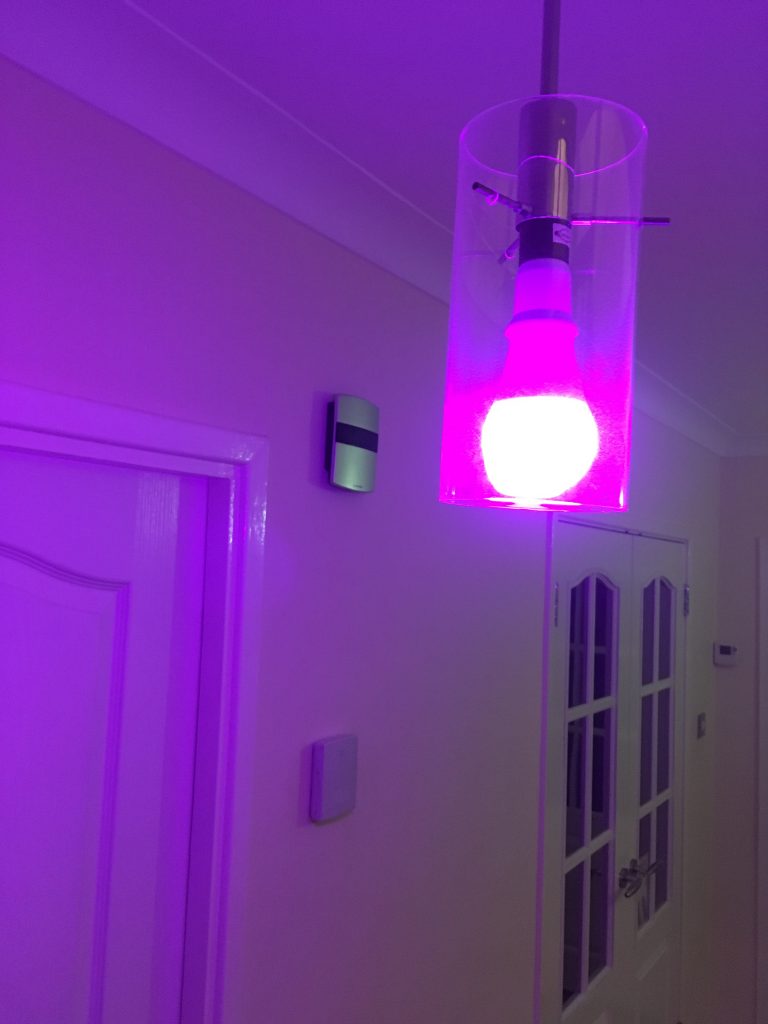
Colour.
Smart switches can either control on/off or act as dimmers, but they don’t vary colour. Some smart bulbs can vary colour. If you want to control colour then you’re going to need some sort of remote control (like The Studio in the kitchen) or access via smart device like a phone or tablet.
Wiring.
Most smart light switches require a neutral wire. However many UK homes do NOT provide a neutral wire at the switch. A typical UK light switch has a live, switched live and earth only (I.e. no neutral) although there may be confusion as the switched live is commonly blue (or black in older homes) like a neutral would be.
Adding a neutral can be relatively costly as it requires a new cable between the ceiling rose and the switch. If having a re-wire it’s worth adding neutrals to the specification just in case.
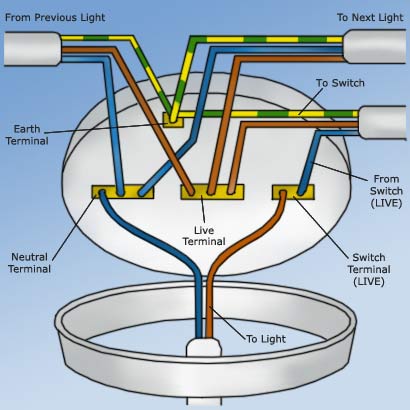
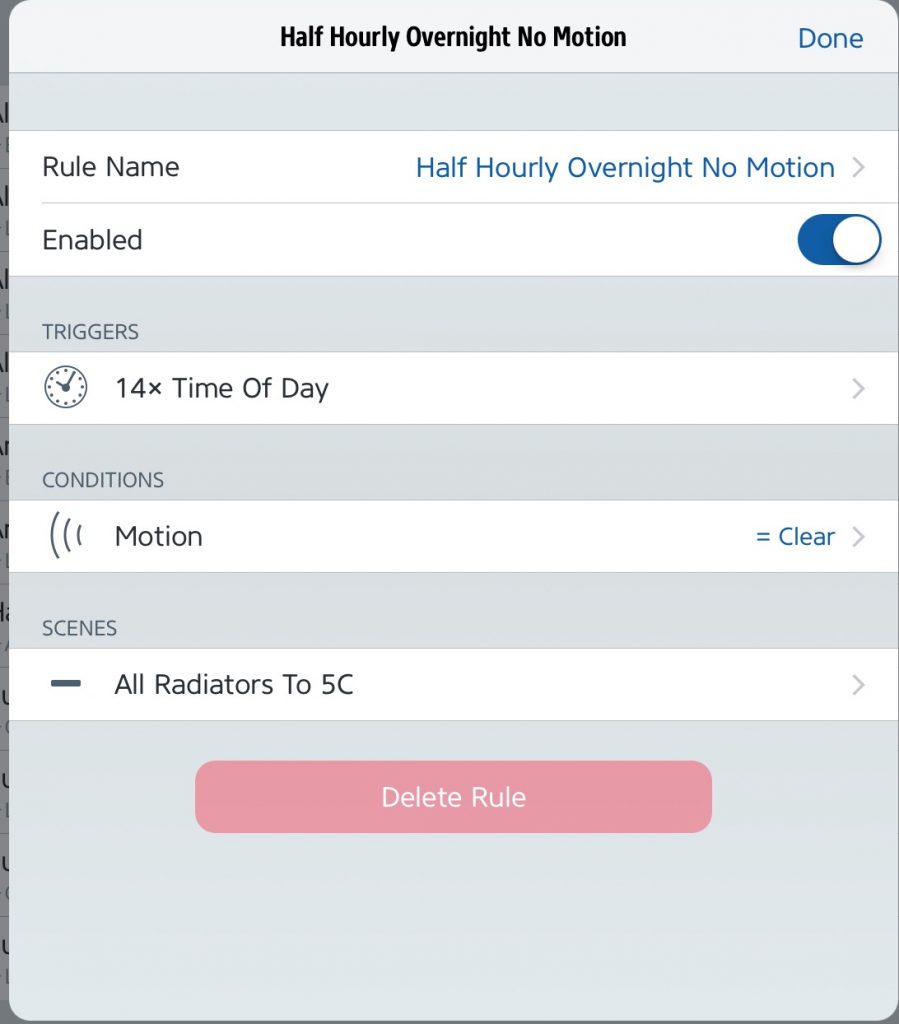
Automation.
Both switches or bulbs can be automated via a smart hub for on/off or brightness to respond to time-of-day, movement, door or window opening etc; so that’s not really grounds to chose between smart switches or smart bulbs.
What about combining smart switches and bulbs on the same circuit?
In short I don’t really know why you’d want to. Even if it worked properly you’d have incurred extra cost for the second smart device for limited benefit as you’ve duplicated the smart functions, but it’s likely not to work properly. Even with simple on/off functions the smart bulb will be missed by the hub when the power is off at the switch (although some ecosystems allow this error to be masked), but with dimmers it will probably be worse as the bulb may not function correctly when the dimmer is set to less than 100% brightness.
You might consider using the smart switch as an smart button without using the switched output, and feed the smart bulb from a permanent live, but that’s not combining them on the same circuit. This could be achieved physically by something as simple as moving the switched live output to the live input on a switch. However the two smart devices, switch and bulb, would then need to be linked entirely programmatically through the hub. That would be at least two automations in HomeKIt – an ‘on’ automation and an ‘off’ automation.
Conclusion
There isn’t a right answer whether smart switches or smart bulbs are best. The best choice will depend on your situation.

Excellent blog, Smart lighting is a new technology & very comfortable. Connecting to electricity supplier very safely & moving to green energy.
Thanks.
I’ve looked at Symbio in the past following their claims to be cheapest for electricity. Unfortunately I’ve never been able to substantiate that claim. I’ve never found a Symbio tariff that would save me money on electricity versus what I pay now. My most recent monthly electricity bill averaged 7.62 p/kWh.
Symbio is also reviewed at 2.7 stars Poor with 49% bad reviews on Trustpilot which doesn’t inspire confidence.